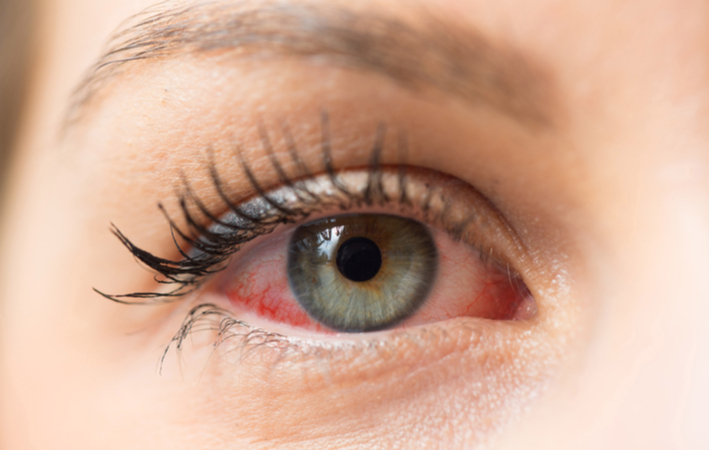Erectile Dysfunction (ED) affects millions of men around the globe. There are many different ways that this condition can manifest itself. Some of the most common and noticeable symptoms are difficulty getting and sustaining an erection, trouble maintaining an erection throughout the night, reduced sexual desire, and loss of interest in sexual intercourse. If you’re experiencing any of these symptoms, it’s important to visit your doctor for an assessment. They will be able to tell you if you have erectile dysfunction, what kind of treatment you need, and how you should go about treating your condition. Here are some common treatments for ED.
Heart Disease: Studies have shown a link between erectile dysfunction and heart disease. ED may be caused by a heart condition known as Hardening of the Arteries, or Haemorrhoids. High cholesterol levels, high blood pressure, smoking, high triglycerides, and low potassium levels in the blood are all risk factors for hardening of the arteries. One of the most common causes of hardening of the arteries is atherosclerosis, or the buildup of fatty plaques on the artery walls.
Psychological Factors: There are several psychological factors that can lead to the onset of erectile dysfunction, including stress, depression, anxiety, and boredom. Stress and depression are known to cause stress hormones to be released in the body. These can cause adverse effects on erectile function, such as decreased libido and decreased semen production. Depression can also cause other psychological conditions, such as fatigue and low concentration, which can further impair the body’s ability to function sexually.
ED Can Be Due to Lifestyle Choices: Besides the above-mentioned health conditions, there are several lifestyle choices that can contribute to the onset of erectile dysfunction, including smoking, drinking, eating too much cholesterol, eating too much salt, and not getting enough rest. It can sometimes seem impossible to live your life with the proper diet, exercise routine, and relaxation techniques. This is why it’s important to visit a sexual health professional such as Proactive Men’s Medical Center for a physical to check on your general health, as well as to make sure that your lifestyle choices aren’t causing you to have erectile dysfunction or any other medical problem. Sometimes a simple change in your diet and exercise habits can make all the difference in the world.
There are several lifestyle changes that will lead to better sexual function and the prevention of erectile dysfunction, which can range from losing weight to adding more supplements to your diet to avoiding too much alcohol. One of the most promising changes is the reduction of salt in the body. Sodium is known to cause water retention, which can hinder blood flow to the penis. By reducing sodium levels, you’ll find that you’re able to get a larger erection and enjoy better sexual function.
Changing your lifestyle choices can be difficult because many times, people try to solve a problem by making things worse. However, if you’re experiencing problems with blood circulation, one of the easiest lifestyle choices you can make is to lose weight. Your blood vessels are directly connected to the amount of sex you do, so if you’re carrying excess weight, you’re probably not getting enough circulation. In fact, having excess weight can cause erectile dysfunction, because there is decreased blood flow to the penile area. Once you’ve lost weight, you should see an increase in sexual performance and your level of overall health.
Erectile Dysfunction (ED) is the inability to have and maintain an erection sufficient enough for intercourse. Having erectile dysfunction from time to time is not necessarily a sign of a much bigger problem. However, if erectile dysfunction has been an ongoing problem, over a period of time, it may have an effect on your self-esteem, stress levels, and may even contribute to existing relationship difficulties. It is important to get an appropriate diagnosis for the condition as treatment can only be successful if the underlying cause is being addressed.
There are several potential physical causes of ED. High blood pressure is one such cause. When blood flow in the arteries becomes difficult, they become stiff and are unable to provide the amount of oxygen needed to pass through them to the heart. Over time, this can lead to atherosclerosis – a condition that can cause erectile dysfunction. A healthy diet, exercise and cholesterol management can help prevent or reduce the development of high blood pressure.
A physical reason for erectile dysfunction may also be due to underlying conditions. Many individuals experience minor issues with their sexual function that can be addressed through over-the-counter medications and/or herbal remedies. If ED is related to an underlying medical condition, a doctor may recommend one of several treatments. Some patients are advised to take medications to block certain hormones or enzymes. These treatments, when administered over time, have been shown to improve erectile dysfunction. In some cases, drugs may be prescribed to treat an underlying condition that is causing erectile dysfunction.
If ED is related to other health conditions, lifestyle choices can help to alleviate the condition. For example, some people have been known to suffer from erectile dysfunction because they smoke, consume too much alcohol or consume other drugs such as marijuana. By making appropriate changes to their lifestyle, these individuals can often stop suffering from this condition. While it is not always possible to eliminate a lifestyle choice that causes erectile dysfunction, it may be possible to make other changes that will help to improve the patient’s quality of life. A comprehensive checkup by a doctor, in conjunction with lifestyle choices that help to manage stress and anxiety can be a good start.
If a person suffers from either low self-esteem or stress-related health conditions, stress can exacerbate erectile dysfunction. Low self-esteem and stress are known to be associated with a number of physical and mental health conditions, which can include depression, anxiety, physical disorders and physical illnesses such as diabetes, hypertension and heart disease. Men who are struggling with issues relating to their relationship and sex life may benefit from a comprehensive evaluation and assessment of their personal situation. Through these sessions, doctors can learn about how stress affects the body and how changes in lifestyle may improve these conditions.
The effects of low self-esteem or stress can be quite devastating, especially if erectile dysfunction has been an issue for a while. Some people turn to pornography, consume excessive alcohol or use illegal drugs in an attempt to overcome erectile dysfunction. While some of these activities may help to temporarily mask the problem, the root cause of the condition often remains. By learning more about how stress affects the body, doctors can develop a plan of action that will address the core issues at play in the situation. By making appropriate changes to a patient’s lifestyle, they may be able to solve their issues with erectile dysfunction without the use of medications or supplements.










Comments